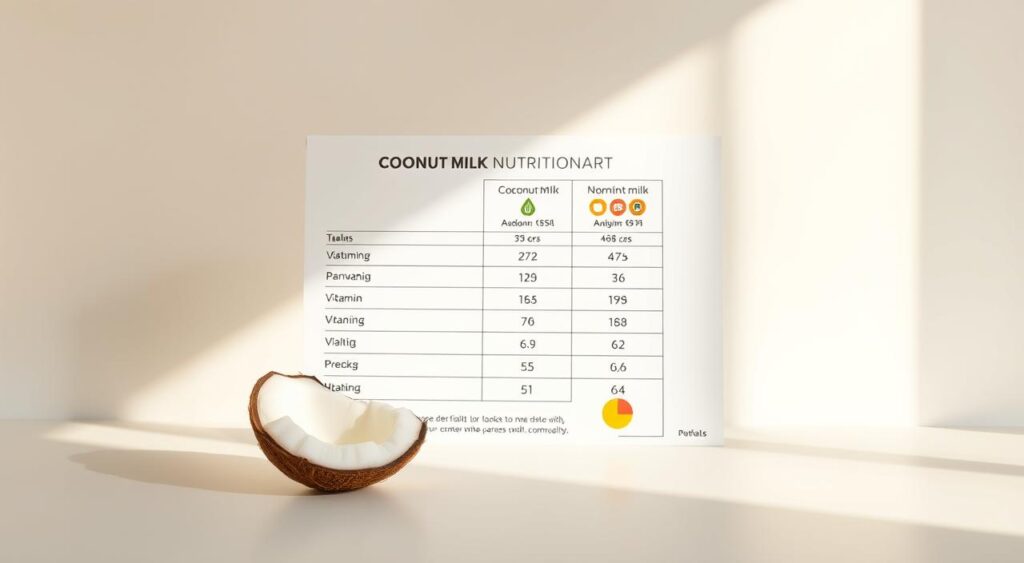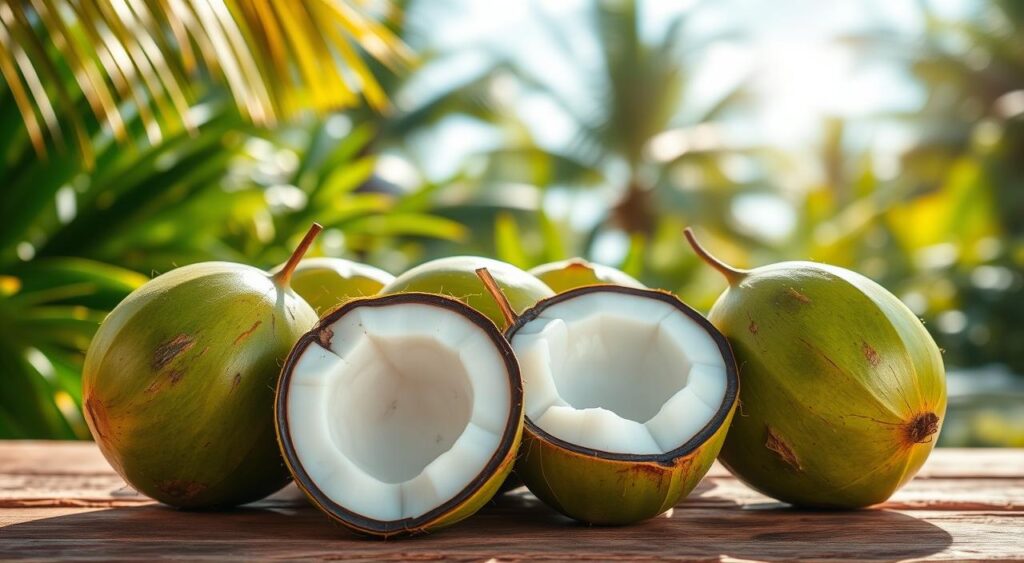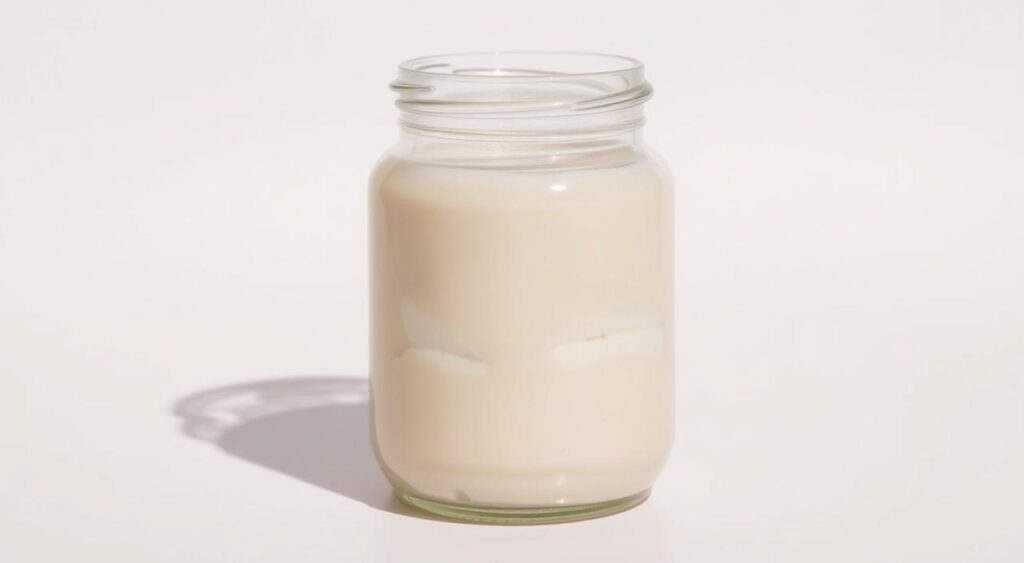Imagine: a warm kitchen smelling of simmering curry or freshly baked coconut cake. And coconut milk is the under-the-radar ingredient for those times, giving that little burst of creamy goodness that can make any dish feel a bit more special. But coconut milk is more than just a tasty beverage; it’s a nutritional powerhouse. Whether you’re trying to eliminate dairy from your diet or just want something tasty and life-sustaining, coconut milk will do the trick.
The positives for your body go hand in hand.
Table of Contents
What is Coconut Milk?
Coconut milk, derived from the grated flesh of mature coconuts, is a creamy, nutrient-dense staple in many global cuisines. Its rich consistency and versatility make it a key ingredient in numerous savory and sweet dishes.
Origins of Coconut Milk
Coconut milk has firm roots in Southeast Asia, South America and the Caribbean. It has been long used in these regions as a staple food as well, for cooking as well as for its taste and nutritional benefits. It has a long tradition, historically finds itself in many typical dishes with its soft texture and discrete sweetnes
Coconut Milk vs Coconut Water
Coconut milk and coconut water are 2 different things, even though they’re extracted from the same source. Coconut water is the liquid found in young green coconuts and is a common beverage. Coconut milk, by contrast, is prepared by soaking then pressing the white flesh of mature coconuts, yielding a thicker, rich and creamy white liquid.
Learning how to prepare coconut milk and the difference of coconut milk vs coconut water, can take your cooking to the next level. Find out how to make coconut milk from scratch, so you can have control over the consistency and freshness—plus it’s cheaper!
How is Coconut Milk Made?
Homemade Coconut Milk Recipe
Learning to make coconut milk yourself will seriously level up your cooking and will leave you with a much fresher (and cheaper!) alternative to store-bought stuff. And now, for a recipe for thick, creamy coconut milk — you can do it at home too!
- Ingredients: You will need one whole mature coconut, hot water, and a blender.
- Preparation: Crack open the coconut and remove the flesh. Cut the flesh into small pieces.
- Blending: Place the coconut pieces in a blender. Add hot water at a ratio of one cup of coconut to two cups of hot water.
- Mixing: Blend the mixture until the coconut is finely grated and well combined with the water.
- Straining: Pour the mixture through a cheesecloth or a fine mesh strainer into a bowl to separate the milk from the pulp. Squeeze the cheesecloth to extract as much liquid as possible.
- Storage: Store the fresh coconut milk in an airtight container in the refrigerator. It will stay fresh for up to four days.
If you do it right, you will have tasty homemade coconut milk to add to your coconut milk recipe of choice. If you are interested in making delicious desserts or a refreshing soup, homemade coconut milk delivers much more flavor and texture than store brands.
Here’s a short primer on the differences between thick and thin coconut milk:
| Type of Coconut Milk | Description | Usage |
|---|---|---|
| Thick Coconut Milk | Extracted from the first press of grated coconut flesh | Desserts, Curries, Sauces |
| Thin Coconut Milk | Obtained by adding water and pressing the coconut residue again | Soups, Lighter Dishes |
With this information in mind, you can effortlessly learn how to use homemade coconut milk in your cooking, making tasty and healthy coconut milk recipes for you and your family.
Coconut Milk Nutrition Facts
Coconut milk is favored due to its creamy taste and ability to be used in dirreret types of dishes but also for its healthy side. Learning about coconut milk nutrition lets you to understand how it fits into a healthy diet, especially when you are trying an alternative to coconut milk from a cow, for those who are vegan.
Calories and Macronutrients
One of the most vital points of coconut milk nutrition is its fat and calories profile. A standard serving of coconut milk, or about one cup of it, includes:
- Calories: Approximately 445 kcal
- Proteins: Around 4.6 grams
- Carbohydrates: Roughly 6 grams
- Fats: About 48 grams, including 42 grams of saturated fats
These fats are predominantly medium chain triglycerides (MCTs) known for their potential to support metabolism and rapidly increase energy levels. Because vegan coconut milk is relatively high in calories, you should think it over when including it in your diet and, more specifically, when adjusting your daily nutrition and caloric balance.
Vitamins and Minerals Content
Coconut milk is a nutritional wonder and surprise when you consider its special creamy consistency. So, how does it measure up? “Words like ‘sugar’ and ‘frosting’,” Popeck suggests, are telling impediments to nutritional value. “But I also see some nutrition — with the fragrance comes good stuff: a lot of vitamins C and E,that serve as antioxidants, as well as B vitamins that are instrumental in energy generation and maintaining cellular health.

| Nutrient | Amount per Cup | Daily Value (%) |
|---|---|---|
| Iron | 7.5 mg | 42% |
| Magnesium | 89 mg | 22% |
| Potassium | 631 mg | 18% |
These minerals play a key role in the health of muscles, the heart, and in the balance of electrolytes and fluids in your body. Therefore, incorporating vegan coconut milk into your diet can be a smart way to help achieve your health and nutrition goals and consume a creamy, full of flavour ingredient, to boot.
Coconut Milk Benefits
Embracing coconut milk as part of your healthy lifestyle offers you pure health benefits, which include fat loss and improvement in heart health. Coconut Milk As a White Blood Cell Generator The special nutritional qualities of the coconut milk can be serving as a great addition to any diet.

Weight Loss and Metabolism
Coconut milk has medium-chain triglycerides (MCTs), which help to increase metabolic rate. These MCTs may help support energy expenditure to enable your body to burn calories more effectively. Including coconut milk in your diet will help you lose weight naturally as it is a great way to boost metabolism.
Heart Health
Coconut milk is commonly touted for heart health as well. Research suggests that coconut milk can assist in decreasing bad cholesterol (LDL ) and increasing good cholesterol (HDL). This fine line is an important factor when it comes to a healthy heart, which is known for reducing your risk of heart diseases. Making it a part of your staple diet can help you have a healthy heart.
Antioxidant Properties
It is very high in MCTs, a type of saturated fat that has been shown to have a variety of benefits on metabolic health, including protection from oxidative stress and damage to your cells. These antioxidants can help fight free radicals, lowering the risk of long-term illnesses and promoting general health. This is part of a longer term health benefit of coconut milk.
Coconut Milk: Antimicrobial and Anti-Inflammatory Properties
Benefits of Coconut Milk Coconut milk is well known for its ability to offer you lots of health benefits. It’s antimicrobial and anti-inflammatory properties are among the advantages.
Lauric Acid
One of the reasons that coconut milk is healthy is due to the presence of lauric acid. This is a medium-chain fatty acid that is recognized for its immune-boosting effects. One of the biggests benefits of lauric acid is its antimicrobial activity which can assist the body against infection causing microorganisms and

Anti-fungal Benefits
Coconut milk health benefits also include antifungal properties. These properties are especially advantageous with respect to immune to fungal diseases. Regular use of coconut milk can strengthen your body’s daily defense, making it an essential dietary supplement to help keep you feeling your best.
Adding in coconut milk is a natural way to give your immune system a kick, as the milk is high in lauric acid and other antimicrobial lipids, plus it tastes amazing.
What Can You Cook with Coconut Milk?
The coconut milk cookery options are insanely tasty. Choclo Creamed Choclo is a great way to add an indulgent, creamy feel and flavor to your sweet and savoury recipes and to give your meals a bit of character for a unique exotic twist. Here are a few tasty recipes for getting the most out of coconut milk in the kitchen.
Sweet Dishes
You can’t beat the luxurious creaminess that coconut milk brings to desserts. Even if I didn’t make traditional rice They all the necessity in the world to be used in this childhood favorite treat.vegan ice creams, the coconut milk recipes for desserts are far reaching. Think of the rich, creamy consistency it brings to a time-honoured mango sticky rice or the rich umami taste in coconut milk pancakes.
Savory Dishes
Coconut milk is also a game changer in all the savory dishes. Little gives your kitchen an exotic feel like a Thai curry or a creamy soup, or even a simple marinade. Cooking with coconut milk imparts depth and richness that’s hard to get from any other ingredient. Coconut milk recipes like chicken curry or lentil stew aren’t just comforting, they also have a nutritional bang.
Beverages
The trend of coconut milk in sipping beverages is both a trend and tasty. It’s a smoothie essential and it’s a great dairy alternative. Coconut milk is also featured in numerous lattes and chai teas for an interesting take on your every day beverage. Think about beginning your day with a coconut milk smoothie and ending it with a creamy, warm coconut milk hot chocolate.
| Type of Dish | Example |
|---|---|
| Sweet Dishes | Mango Sticky Rice |
| Savory Dishes | Chicken Curry |
| Beverages | Coconut Milk Smoothie |
Canned Coconut Milk vs. Fresh Coconut Milk
When you decide to start using coconut milk for your culinary artistry, whether to use canned coconut milk or fresh coconut milk is a big decision. Both have significant advantages and drawbacks squeezing the juice from a lemon or lime, and will serve up some unique capabilities on the table that will help you determine which to place on your table.
Pros and Cons of Canned Coconut Milk
Characteristics Canned coconut milk is so convenient, especially if you cook a lot. It has a long shelf life and you can store it in your pantry for months and it’s readily available when you want it. Furthermore, the flavor and texture are typically more uniform due to the standardized production methods.
Pros: Easy, long shelf life, good quality outputs
Cons: Sometimes has included additives, may lack flavor
Benefits of Fresh Coconut Milk
Fresh coconut milk, on the other hand, is creamy and has a deliciously intense flavor that’s difficult to replicate! Its subtle taste can make both sweet and savory dishes that much more homemade and hearty. But it takes more work to get it out and doesn’t last as long; it usually must be refrigerated and used within days.
Pros: Tastes rich and natural, freshness, nothing added
Thoughts: Take time to prepare, doesn’t keep as well
I appreciate both canned and fresh coconut milk, canned for its convenience and fresh for its superior taste. If you have a personal favorite or if you prefer one kind to another, try the other coconut milk alternatives on the market to fit the bill for your recipes.
Best Coconut Milk Brands
The best coconut milk brands can make the difference between loving the dishes you cook and eating ones that you’d rather pass on. Of my go-to brands, Thai Kitchen is the richest and creamiest and most versatile in savories and sweets. Renowned for its wonderful taste and consistent quality, Thai kitchen’s coconut milk is sure to become a staple in your kitchen.
One other good brand is Natural Value. The organic coconut milk from Arroy-D is sans fillers and gums (carrageenan) and it’s bpa free so health enthusiasts will be reaching for this delicious milk. It also has an excellent flavor and consistency that is great for an array of dishes including curries or desserts.
If you’re into organic, So Delicious has an organic coconut milk for just about any diet. Theircanned and refrigeratedcoconut milk is a favorite due to its silky texture and dedication to organic sourcing. By choosing from the best coconut milk brands, you’ll be able to continue cooking, maintain the same great taste, and maintain your health.
FAQ
What are the benefits of coconut milk?
Coconut Milk is also good for you. It’s a dairy free option that’s packed full of nutrients and may help with weight loss and heart health. It’s rich in MCT, which increases metabolic rate, leads to weight loss, and can improve cholesterol levels.” It’s also full of vitamins C, E, B, as well as iron, magnesium, and potassium.
How is coconut milk different from coconut water?
Coconut milk is made from the flesh of mature coconuts and coconut water comes from the liquid found inside young, unripe coconuts. Coconut milk is made by grating and pressing the meat, yielding a rich white liquid that is high in fat and nutrients, while coconut water, made from boiling the meat, is a clear, low-calorie drink that contains fewer nutrients.
How can I make homemade coconut milk?
For homemade coconut milk you’ll need mature coconut meat, water and a blender. Scrape the coconut flesh and mix it with some water. Pour the mixture through a cheesecloth or a very fine sieve in order to separate the milk from the pulp. The first press produces thick coconut milk, and extra water can then be added to the pulp for a second press (or however many to get thin milk).
What is the difference between thick and thin coconut milk?
Thick coconut milk is obtained from the first pressing of grated coconut flesh and is ideal for desserts and sauces due to its rich, creamy texture. Thin coconut milk comes from a second pressing with additional water and is best used for soups and lighter curries.
Is coconut milk good for your heart?
Yes, coconut milk is good for the heart. These changes in cholesterol may be mediated by medium-chain triglycerides (MCT) in coconut milk that may increase good HDL cholesterol. It’s also rich in antioxidants that help protect against cell damage and may reduce your risk of heart disease.
What are the antimicrobial and anti-inflammatory benefits of coconut milk?
It’s Worth the Hype: Lauric Acid Lauric acid in coconut milk has some antimicrobial and anti-inflammatory qualities. Properties : It Support to improve immune function & Prevent fungal infections. Lauric acid also has anti viral and anti bacterial properties and coconumt milk is a healthy source of Lauric acid.
What are some cooking applications of coconut milk?
Coconut milk is versatile in cooking, adding flavor to sweets, savory dishes, and drinks, making it ideal for vegan or lactose-intolerant recipes.
What are the pros and cons of canned vs. fresh coconut milk?
Canned coconut milk offers convenience and extended shelf life, while fresh coconut milk offers superior flavor but requires more preparation time and shorter shelf life.
What are some of the best coconut milk brands?
Thai Kitchen, Native Forest, and Aroy-D are top-rated coconut milk brands known for their quality, flavor, and ethical production practices, providing the best culinary experience.
1 thought on “Coconut Milk: Unlock the Flavor and Health Benefits”